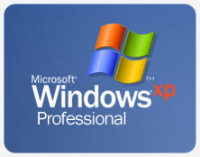 Everybody is making a huge deal out of the fact that Microsoft has ended support for Windows XP on April 8th and some media outlets even claim that the lack of patches will result in XP being a hacker’s paradise. Nothing could be further from the truth – although upgrading to at least Windows 7 would be a wise choice for businesses, there is really no need for the private user if there are good reasons to stay with XP. The current media brouhaha about the end of Windows XP only amounts to simple fearmongering towards less experienced users who Microsoft wants to buy their latest operating system.
Everybody is making a huge deal out of the fact that Microsoft has ended support for Windows XP on April 8th and some media outlets even claim that the lack of patches will result in XP being a hacker’s paradise. Nothing could be further from the truth – although upgrading to at least Windows 7 would be a wise choice for businesses, there is really no need for the private user if there are good reasons to stay with XP. The current media brouhaha about the end of Windows XP only amounts to simple fearmongering towards less experienced users who Microsoft wants to buy their latest operating system.
The main problem is one that Microsoft have created themselves – with XP, they had built the first really well-working version of Windows that has lasted for over a decade and will probably last much longer. The failure to produce a worthy successor after a couple of years was perhaps the worst mistake, with the debacle of Vista over five years after XP’s introduction making the older system only more popular. When the real successor Windows 7 finally appeared in 2009, it was practically too late to really convince legacy users to upgrade – and I’m only talking about private users here.
But what really happens now with Windows XP? The short answer is: nothing! The operating system will simply continue to work and it won’t get much less secure if you take some very simple measures. The bottom line is that it’s not really the OS that is the security risk, but the programs that run on it. If you have your computer connected through a router and have the most dangerous ports blocked, use a permanent virus scanner and keep your web browser(s) updated, there is no reason to think that Windows XP is automatically insecure. Also, just because Microsoft has chosen not to make its Internet Explorer above version 8 compatible with Windows XP does not mean you can’t access the web on an XP machine safely anymore – just use a real browser like Chrome or Firefox (sadly, Opera doesn’t really belong on this list anymore).
There are still many reasons to keep using Windows XP and almost all of them have to do with the hardware. Microsoft says you should upgrade your computer hardware NOW, but if you simply can’t afford it or if you have some legacy card around which needs XP to work, you are stuck. I still have to use XP on my main computer because there are no other drivers for my trusty old WinTV capture card which I use to digitize videotapes. I probably would have been able to install Windows 7 on my notebook when I changed harddrives last year, but since it only can take a maximum of 1 Gigabyte RAM, XP is still the leaner and faster option – and my secondary backup laptop, a little Pentium-III subnotebook with only 384 Megabyte RAM, would choke on anything bigger than XP. In the end, buying a new computer just because XP is supposedly dangerous is utter nonsense. Keep your hardware, keep XP running.
The only feasible alternative would be to switch to a Linux distribution, which I would do in a heartbeat if there were not some Windows programs I have gotten so accustomed to that I can’t live without them. But if you just use your computer to surf the web and do some office work, chuck out Windows altogether and switch to Linux and LibreOffice. Try out Ubuntu or openSUSE, two of the most easy-to-use Linux distributions around which are far less complicated to use than they were only a decade ago. They don’t cost anything and you can try them out with a bootable DVD first without installing them on your harddrive.
The bottom line is that if you take some very simple security measures and you like your computer as it is, you will be absolutely fine. It may sound like Microsoft is forcing you to do an expensive upgrade, but in the end it’s all an artificially produced end of life of an operating system that doesn’t really deserve a premature death.